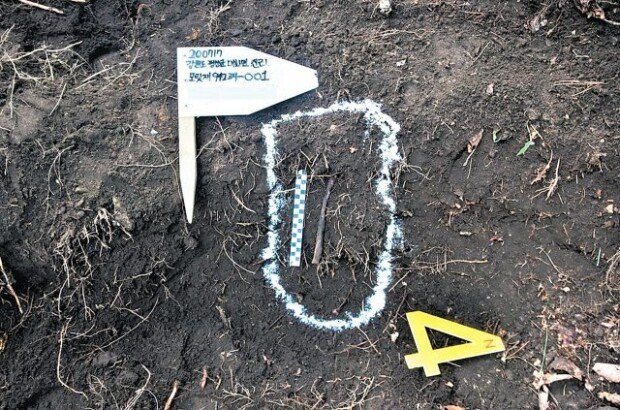A Korean War veteran who left only nails and toenails returns to family
A Korean War veteran who left only nails and toenails returns to family
Posted November. 09, 2022 08:10,
Updated November. 09, 2022 08:10

A South Korean soldier who died fighting the communist forces in the Korean War has returned to his family in more than 70 years. According to The Ministry of National Defense of Agency for KIA Recovery and Identification (MAKRI) on Tuesday, the remains of the ROK Army recovered from Sin-ri, Pyeongchang County, Gangwon Province in July 2020 were identified as Army Sgt. Song, Byeong-seon.
After losing his father at 15, the native of Ongjin County, Incheon became the de facto head of the household responsible for his mother and sister. He married at 20 and started a family. When the Korean War broke out, he enlisted in the 3rd Regiment of the 7th Division of the ROK Army, leaving two young daughters behind, including the youngest daughter, who was barely a year old. On March 6-12, 1951, he fought in the battle near Hajinbu-ri in Pyeongchang.
At that time, the 3rd Regiment of the 7th Division, to which the deceased belonged, defeated the communist forces via Mt. Jamdu and Mt. Baekjeok in Pyeongchang and succeeded in recapturing Soksa-ri and Hajinbu-ri in Pyeongchang, but the deceased was killed in this battle.
Sixty-nine years later, some remains of the deceased, such as his left arm bone, and other items, such as combat boots and buttons with an eagle pattern, were unearthed. It is reported that the military confirmed the identity through genetic (DNA) identification.
"Before the war ended, as only my father's toenails had returned, I thought I needed to find the other remains, and I prayed a lot for them to be found because I was afraid they would be lost forever,” said Song Hyo-sook, the eldest daughter of the deceased. “My father was a man who cared about others’ well-being over his because he once saved a neighbor’s children from a burning house after putting out the fire.”
On Wednesday, the Korean military will hold a “return event for the hero of the country” at the home of the bereaved family in Incheon to bestow the Hwarang Order of Military Merit to the family even though the award was already decided back in 1954, yet could not be delivered.
Sang-Ho Yun ysh1005@donga.com
Headline News
- Joint investigation headquarters asks Yoon to appear at the investigation office
- KDIC colonel: Cable ties and hoods to control NEC staff were prepared
- Results of real estate development diverged by accessibility to Gangnam
- New budget proposal reflecting Trump’s demand rejected
- Son Heung-min scores winning corner kick







